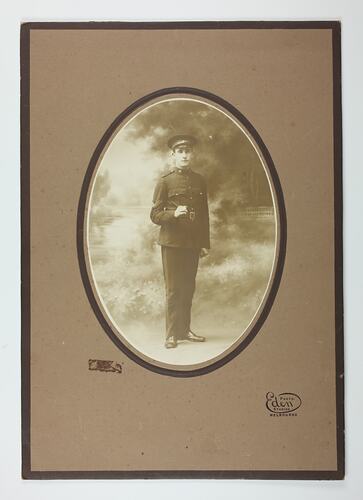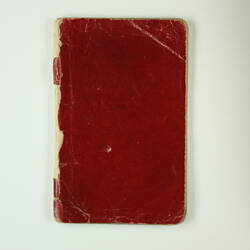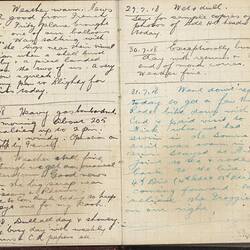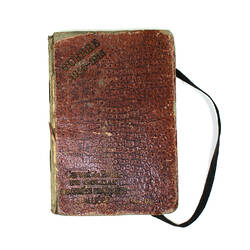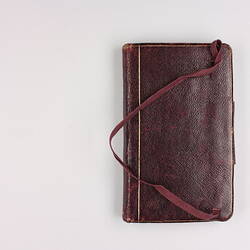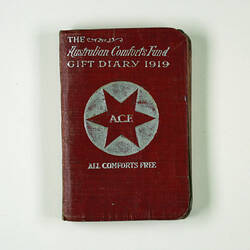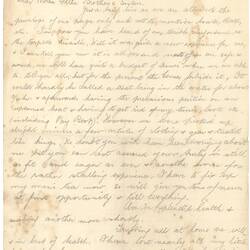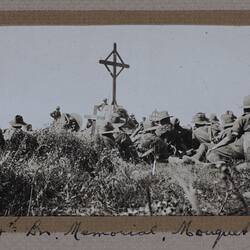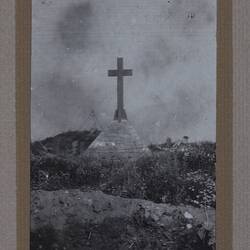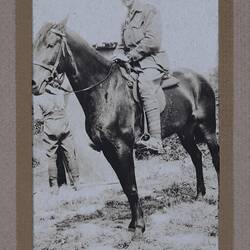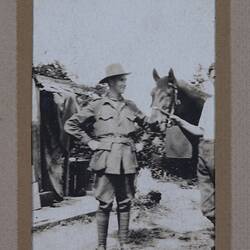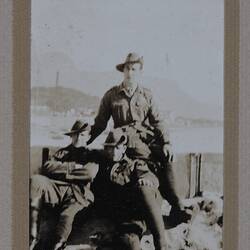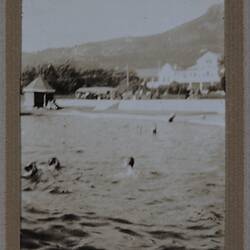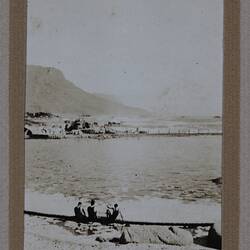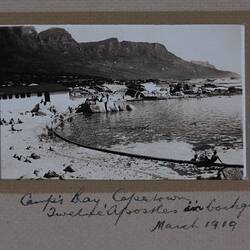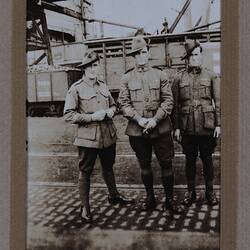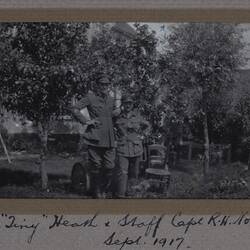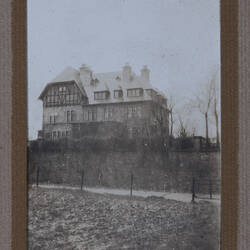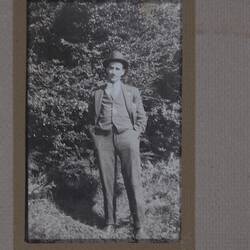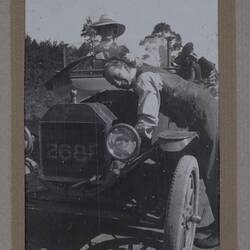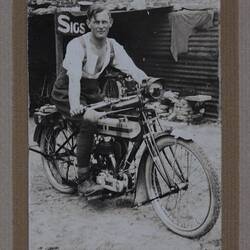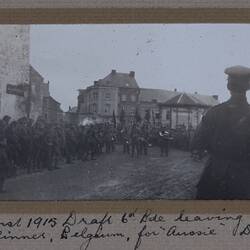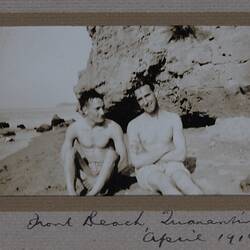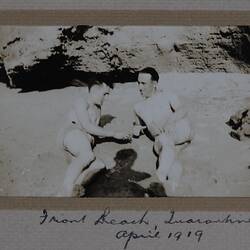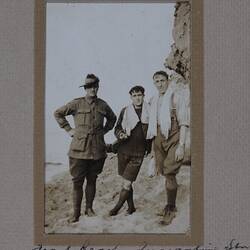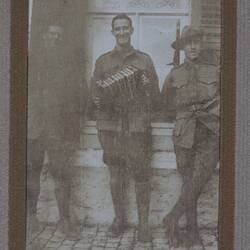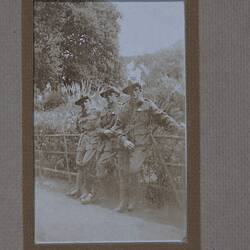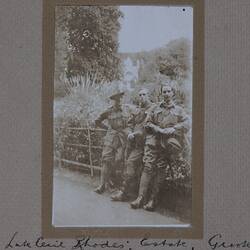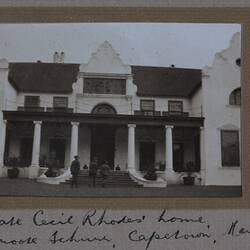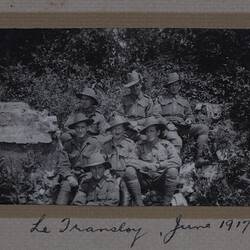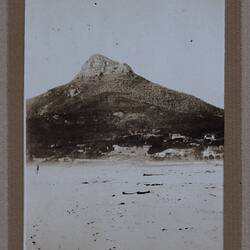Sergeant Gilbert Payne Mulcahy was born on 14 June 1893 in Clunes, Victoria, the eighth child of John and Margaret Mulcahy. He served in the Australian Citizen Forces (aka Militia) as an engineer for three years before enlisting in the A.I.F. on 15 February 1915. He was given regimental number HQ1 and assigned to the 6th Brigade Headquarters, embarking from Melbourne to on the HMAT Ulysses on 10 May 1915.
Gilbert was first appointed as a Corporal and Brigade Clerk before being promoted to Sergeant in March 1915, and then Order Room Sergeant in April of the same year. Later his discharge certificate listed him as a Company Sergeant Major; years later, in correspondence to the Central Army Records Office, he described his rank as Warrant Officer, class II.
Gilbert served with the 6th Brigade in Gallipoli from September to December 1915 before being evacuated to Egypt. It was in Gallipoli that Gilbert began to lose his hearing, after falling ill with influenza, leading to 10 days in hospital. He would later write 'I believe the severe winter conditions experienced during my service on Gallipoli and in France adversely affected my hearing.' as he sought treatment, post-war, for deafness.
The freezing conditions continued on the Western Front, where Gilbert was stationed with the 6th Brigade until 1918. Whilst serving in Europe Gilbert was awarded the Meritorious Medal in October 1916 'in recognition of [his] valuable services rendered during the present war.' He was also recommended for the Military Medal in September 1916 for showing 'marked coolness, untiring energy and ability under most adverse conditions' during his time in the 6th Brigade. However, he did not receive the Military Medal.
Gilbert eventually returned to Australia on 9 March 1919. In recognition of his services he received the Victory Medal and the British War Medal. Later, in April 1967, he requested the Anzac Commemorative Medal and Lapel Badge which had been issued for the Anzac veterans - a request that appears to have been granted.
According to census records Gilbert lived in Melbourne and resumed his work as a clerk. He did not report his hearing difficulties until much later in life, and was 81 when he applied for a war pension. He died in 1979, aged about 86. His ashes were interred in the Banksia Wall, Wall W, Niche 93 at the Springvale Botanical Cemetery on 16 March 1979.
Of Gilbert's six surviving siblings, two of his brothers (Albert Edward and Horace Stanley) enlisted in February 1916 and left Australia on the HMAT Euripides, on 4 April 1916. Both brothers served as privates in the A.I.F. and returned home to Australia on 10 June 1919, although Albert's experience of war was quite different to Gilbert's: Albert was court marshalled 'in the field', on 13 December 1917, after several occasions of being absent without leave. Sentenced to four years in military prison, he was injured with a gunshot wound to the right leg and invalided to the U.K. on 11 August 1918, shortly before the war's end. Having narrowly escaped jail, he was dismissed from the A.I.F. on 7 April, 1919, returning home from Port Lyttleton.
Museum Victoria holds Gilbert's diaries, family correspondence and photograph albums documenting his war-time service.
References
The AIF Project
Ancestry.com
Australian War Memorial - Honours and Awards Search
The National Archives of Australia - Series B2455 - A.I.F. Service Record: Gilbert Paine Mulcahy
The National Archives of Australia - Series B2455 - A.I.F. Service Record: Albert Edward Mulcahy
The National Archives of Australia - Series B73 - The Department of Veterans' Affairs, The Deputy Commissioner for Repatriation, Hospital and Medical Files: G.P.Mulcahy; items 13033802 and 13033803
More Information
-
Keywords
-
Localities
-
Authors
-
Contributors
-
Article types
